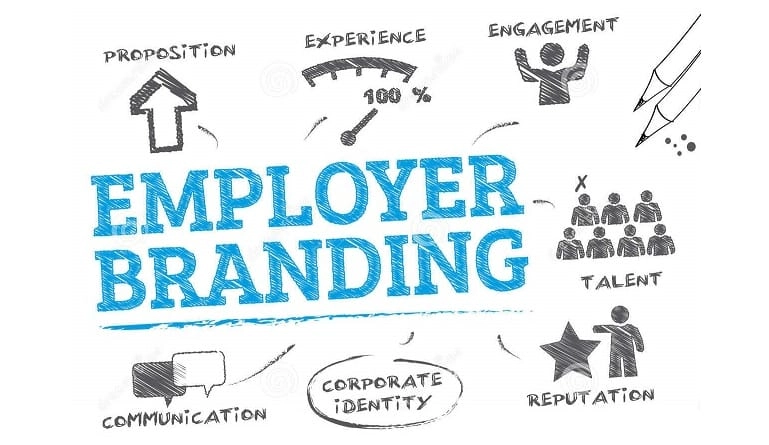What does employer branding mean for your company?
How your branding as an employer affects your hiring, retention, and culture success.
There are a lot of ways that companies define success: employee satisfaction, customer service rating, profits, sales, number of investors, and the list goes on and on. No matter what your definition is, or if it’s a combination of several pieces, there are several things that go into making that success a reality.
One of the most important things in the foundation of business success is having the right employees in place. Success grows from having passionate, capable individuals in each of the positions in your company. Startups live or die on the dedication and flexibility of their hires, while other businesses might need talent that is extremely tech-savvy, highly educated, and has many certificates and credentials.
No matter what kind of employees your business needs, employees are crucial to the success of your business. To attract and retain the best talent, you need to make sure you’ve positioned yourself well with employer branding.
What is employer branding?
Employer branding is different than what you might think of when you think of a company’s “brand.” When you think of Nike’s brand, for instance, you might think of sleek commercials, simple colors, and the iconic advertising message of “Just Do It.” This branding says a lot about what the company sells – high quality athletic gear for the serious athlete. Apple’s brand is all about consumers who are looking for an intuitive and innovative tech product. But does any of a company’s marketing, advertising, or brand presence say anything about what kind of company they are to work for?
Employee branding is the way your company positions itself not to consumers, but to potential employees and represents what kind of business you are to work for.
How is employee branding communicated?
Regular company branding or marketing might appear in marketing materials, printed magazines, advertising, websites, and other spaces. Employer branding is found in places such as Indeed and Glassdoor, where candidates can read employee reviews, as well as, social media, where employees can get a feel for a company’s personality. Brands also want to make sure to use the “Jobs” or “About Us” section of their website to make sure they communicate their brand voice, company mission, and other important employee information to give a comprehensive picture of their company.
How can employee branding lead to success?
Having a successful employer branding strategy means you’ll find more qualified candidates for positions at your company. When your company is known as a place that people like working at and are treated well, you’re even more likely to attract other talent who wants to make a lasting contribution to a company that they’re proud of, rather than someone who just wants to keep a seat warm and collect a pay check.
What are some examples of positive employee branding?
Just like consumer marketing, your employer branding methods will look different for your business. Some examples of perks and benefits that companies like to use to set themselves apart include:
- Work-life balance
- Flextime
- Work from home schedule
- Above-market pay
- Onsite child care
- Onsite gym or paid for gym membership
- Standing desks or other flexible furniture setups
- Competitive retirement packages
- PTO
- Paid training
- Onsite café
- Stipend for technology like a cell phone or car
There are plenty of ways that you can help your company stand out and be seen as a desirable place to work. Google is known for their employee-friendly policies and office spaces and while you might not want to try to compete with Google, it’s easier than you might think to create an effective employer brand that will boost your business success.




